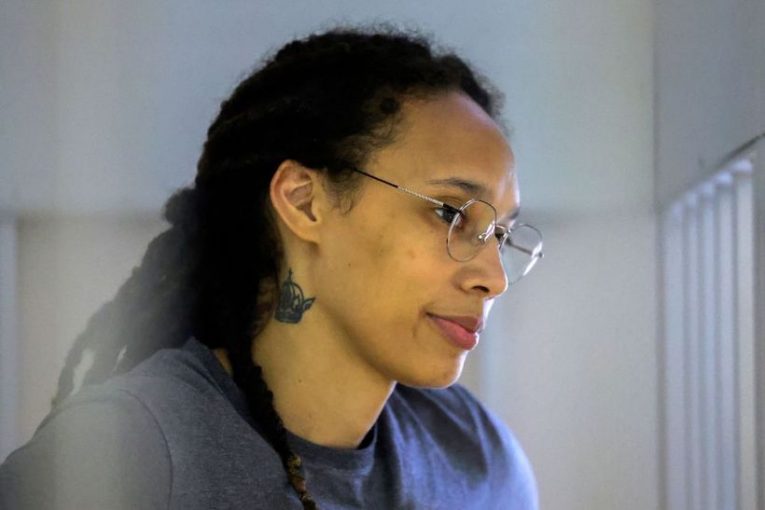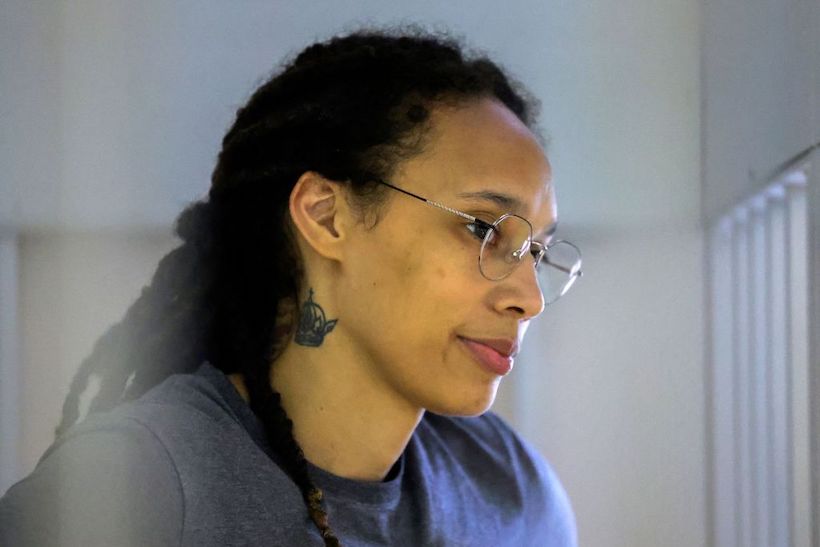

By David M. Greenwald
Executive Editor
How you react to the release of Brittney Griner says a lot about where you stand on a whole host of issues. For much of the left, Griner was unjustly punished and absurdly sentenced and thus freeing her was the right thing to do.
As an article in the NY Times notes, “Within hours of Ms. Griner’s release, much of the right wing was in full outrage mode, seizing upon both the man Ms. Griner had been exchanged for — Viktor Bout, a notorious Russian arms merchant serving time, in part, for endangering American lives — and the Biden administration’s failure to secure the release as well, or instead, of a former Marine, Paul Whelan, who has languished in a Russian prison since his 2018 arrest on espionage charges.”
They also note, “A considerable amount of attention was also paid to who Ms. Griner is: a Black woman, a celebrity, a married lesbian and, though it had gone largely unnoticed until now, an assertive liberal — one who, at the height of the Black Lives Matter protests, called to stop playing the national anthem at her team’s basketball games.”
I have a somewhat different take.
First of all, yes, Griner made mistakes here. No doubt. You have to be aware of the laws.
But even granting that, the punishment is way disproportionate to the crime. The sentence here is unjust. What’s more, Russia knows it—that’s why it took a prisoner exchange to get her out.
My problem: she’s not the only one. No, I’m not talking about Paul Whelan.
Yesterday, for example, I got to interview Andre Brown alongside his attorneys Oscar Michelan and Jeffrey Deskovic. Brown in 1999 was wrongly convicted of attempted murder. He spent 23 years in prison.
Michelan took on the case six years ago. They had to fight and claw to finally get the conviction overturned. But even then, the judge refused to declare him actually innocent and the prosecution is appealing. So, while Brown is home with his family finally, he is not in the clear.
Brown is hardly alone.
A few months ago, I interviewed Northeastern University Professor Daniel Medwed. In his book Barred he focuses on precisely this problem: “Thousands of innocent people are behind bars in the United States. But proving their innocence and winning their release is nearly  impossible.”
impossible.”
When we spoke with Brown, he was thankful to the work of the Vanguard. Our interns, Jose Medina and Samara Yarnes wrote a long exposé on his case. During the interview, Jeffery Deskovic also credited another podcaster with helping to investigate and shed light on the case.
When a man was freed in Georgia after 25 years, the Georgia Innocence Project also thanked the work of two podcast journalists: “Clark learned that the hearing and speech-impaired man, Charlie Childers, witnessed an unrelated, factually similar shooting in 1976 and that he is unable to effectively separate the facts of that case from the circumstances surrounding Bowling’s 1996 shooting.”
More famously, it took the work of the Serial podcast to help free Adnan Syed in Baltimore, where murder charges were finally dropped in October.
When we talked with Brown, he was grateful that he had the help that he did, but he also noted that he didn’t have a Kim Kardashian with her money and ability to publicize a case in his corner.
He also did not have the national media focusing heavily on the case. He didn’t have the President of the US negotiating with his captors for his release.
As Biden put it in remarks on Thursday, “It took painstaking and intense negotiations, and I want to thank all the hardworking public servants across my administration who worked tirelessly to secure her release.”
Biden said, “She wrote to me back in July. She didn’t ask for special treatment, even though we’ve been working on her release from the day one.”
She requested a simple, quote, “Please don’t forget about me and the other American detainees. Please do all you can to bring us home.”
Again, I have no problem with working to free her. I don’t have a problem with a swap if that’s what had to happen. Her sentence was unjust.
My problem is that it’s not just American detainees that should be focused on. There are many many people in our own criminal legal system that have been wrongly convicted. Many more who have been unjustly prosecuted—the victim of police and prosecutorial misconduct. And many of them should be home with their families now.
They don’t get the President advocating on their behalf. Biden has rightly been criticized for the lack of commutations and pardons during his tenure.
They don’t get wall to wall national coverage. They have to fight for it alone or sometimes, if they are lucky, a podcaster or investigative journalist will take up their cause.
These people are just as much victims of injustice as Brittney Griner—maybe even more so. We need to realize that while Russia certainly was extreme and probably politically motivated here, that our stuff stinks too.
We have the highest incarceration rate in the world and unfortunately a lot of the people that we have in custody shouldn’t be there either.


I don’t believe that it necessarily does.
Also, what if you don’t really see this as a truly consequential action in the first place, either way? Does that say a lot about where someone stands?
Compare this to all of the dying and suffering in Ukraine, for example. Have to wonder if that would still occur if the U.S. wasn’t involved in that war. Maybe it would just be part of Russia by now, instead. (Similar to what it was as part of the Soviet Union.) Is what we’re doing creating a “better result” than that? I don’t know.